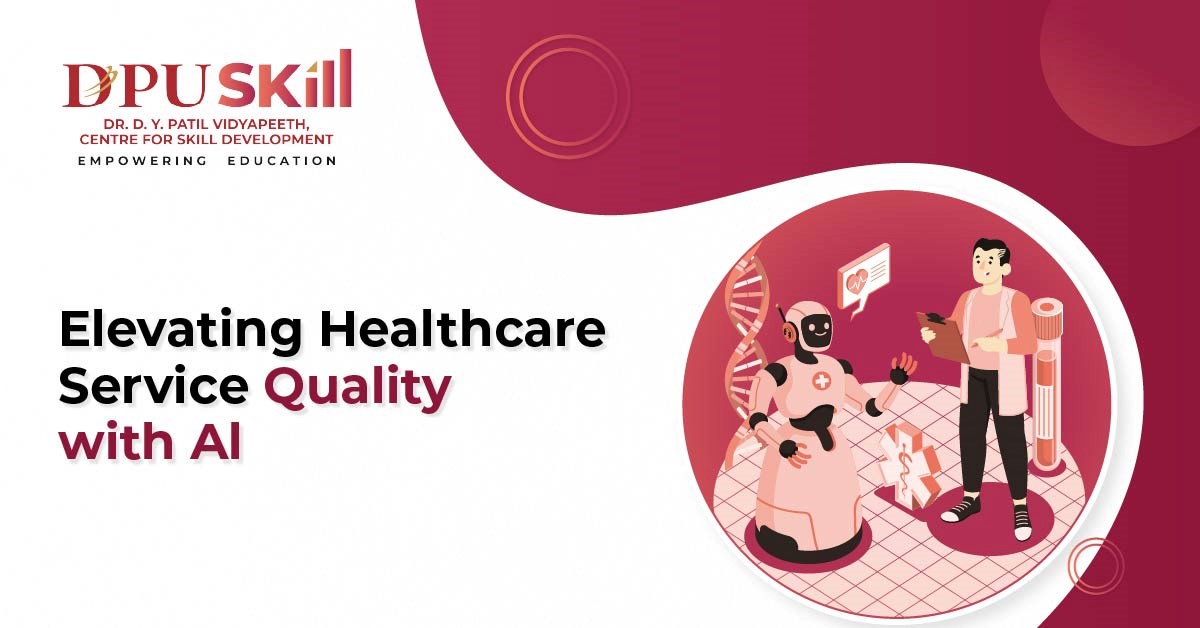
Artificial Intelligence (AI) has rapidly become a powerful force in healthcare, driving advancements that enhance service quality, operational efficiency, and patient-centered care. Its applications span from diagnostics to resource management, enabling healthcare organizations to address the growing demands of modern healthcare with precision and adaptability. In hospitals and healthcare settings, AI is reshaping the way care is delivered, focusing on patient outcomes, workflow optimization, and timely, data-informed decision-making.
1. Predictive Analytics for Early Diagnosis and Prevention
One of AI's most impactful roles in healthcare is in predictive analytics, where AI models process vast datasets to identify patterns that signal early stages of chronic diseases, such as diabetes, cardiovascular conditions, or cancer. By proactively identifying at-risk patients, healthcare providers can implement early interventions, improving patient outcomes and reducing the cost and intensity of treatment. For hospital administrators, predictive analytics helps plan resources more efficiently by anticipating patient needs and demand for specific services, optimizing the allocation of staff and medical equipment.
2. Enhanced Imaging and Diagnostics
AI-driven imaging tools are revolutionizing diagnostics, with algorithms trained to analyze X-rays, MRIs, CT scans, and other medical images for anomalies such as tumors, fractures, or organ abnormalities. These tools enable radiologists to interpret images with greater speed and accuracy, supporting faster diagnoses and treatment decisions. For hospitals, this means shorter patient wait times and a more streamlined diagnostic process, ultimately leading to better patient care and resource utilization.
3. AI-Powered Virtual Health Assistants
AI-enabled virtual health assistants, such as chatbots and voice-activated tools, offer patients 24/7 access to medical information, appointment scheduling, symptom checking, and medication reminders. These assistants personalize interactions, making healthcare more accessible and user-friendly while easing the workload on administrative and clinical staff. Particularly in high-volume hospitals, virtual health assistants play a critical role in improving patient engagement and satisfaction by addressing routine inquiries, freeing staff for more complex tasks, and ensuring patients receive timely information and support.
4. Data-Driven Treatment Optimization
AI is also transforming treatment planning, allowing for more tailored, data-informed medical decisions. By analyzing data from numerous cases, medical research, and treatment outcomes, AI algorithms can recommend individualized treatment plans based on factors like patient history, demographics, and current health status. This not only enhances treatment effectiveness but also reduces the likelihood of adverse outcomes, as treatment approaches can be more accurately aligned with each patient's unique needs. Hospital administrators benefit as well, as AI-driven treatment plans help reduce readmission rates and optimize resource allocation.
5. Streamlined Operational Efficiency in Hospital Administration
In the realm of hospital administration, AI’s ability to optimize operational processes is invaluable. Machine learning models help predict patient admission rates, manage bed occupancy, schedule staff, and streamline billing processes. By accurately forecasting demand and minimizing bottlenecks, hospitals can ensure a smoother patient flow, reduce wait times, and improve overall patient experience. During global health crises, such as the COVID-19 pandemic, AI enabled the rapid analysis of health data and supported public health responses by identifying resource needs and potential hotspots, helping hospitals allocate resources efficiently in critical times.
AI’s role in healthcare and hospital administration is transforming the quality and responsiveness of care. By applying AI to diagnostics, treatment, and administrative processes, hospitals can shift toward a more predictive, data-informed model of care. This not only improves service quality and patient satisfaction but also promotes a more sustainable healthcare environment that adapts to changing needs swiftly and effectively. As AI technologies continue to evolve, their integration into healthcare will further redefine how care is delivered, ultimately making healthcare more accessible, efficient, and patient-centered.
In conclusion, AI is setting new standards in healthcare quality and operational excellence. Its impact on patient care and hospital administration is undeniable, marking a future where healthcare delivery is not only more efficient but also increasingly aligned with the goal of delivering personalized, effective, and timely care to every patient.
Initially developed for the rapidly evolving software industry, Agile project management has now emerged as a powerful tool in the healthcare and hospital administration sectors. Its principles—adaptability, iterative processes, and collaboration—are well-suited to managing complex healthcare projects. From improving team dynamics to delivering patient-centered solutions, Agile brings notable benefits that can significantly improve healthcare outcomes.
Author
Mr. Rohit Oke
Healthcare Expert with 21 Years of Experience | Specialized in Patient Care and Employee Safety | Expert Trainer at DPUSKILLS

Discover DPUSkill, India’s No.1 platform for upskilling professionals. Boost your career with expert-led courses and global certifications.
Read More
Discover how cybersecurity is revolutionizing industries like healthcare, finance, retail, and education, protecting data and ensuring operational continuity.
Read More
Discover how Agile project management boosts healthcare efficiency, adaptability, and patient care with real-world applications and proven benefits.
Read More